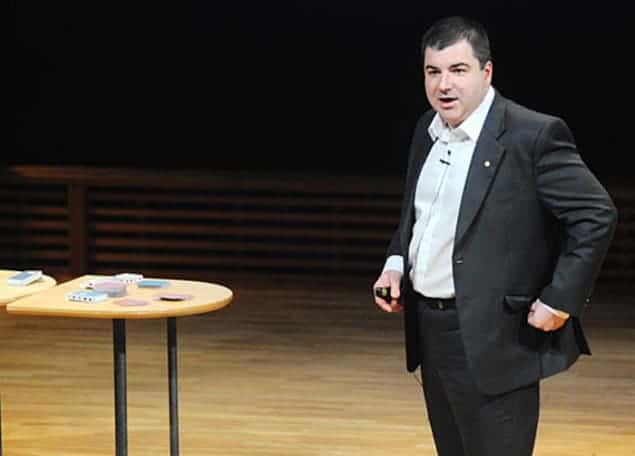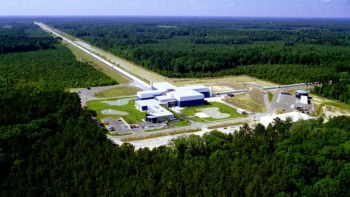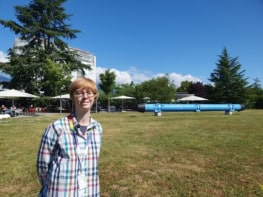
The 2010 Nobel-prize winner Konstantin Novoselov of the University of Manchester in the UK has taken up a part-time role at Radboud University Nijmegen in the Netherlands. Novoselov, 40, will hold a special chair in the electronic properties of novel materials at the university, which will be funded by Nijmegen’s High Field Magnetic Laboratory (HFML), where the Nobel-prize winner carried out parts of his PhD research.
The Dutch physics community has welcomed the appointment, adding that it underlines the “special relationship” between Novoselov and Radboud University Nijmegen. Between 1997 and 2001, Novoselov worked at the university together with his former mentor Andre Geim, with whom he shared the 2010 Nobel prize for their work on the properties of graphene. Since its discovery in 2004, interest in this “wonder material” has rocketed – both in terms of fundamental science and potential future applications.
Novoselov, who was born and raised in Russia, says that he is honoured by the new position – which will not be paid, except for expenses – stressing that it seals a long-standing collaboration with Nijmegen. Indeed, Novoselov visits the HFML regularly to conduct experiments and he will continue to give occasional colloquia, although the new job will not involve any formal teaching commitments.
Nijmegen created a similar academic chair for Geim in 2010 and Novoselov has now been honoured in the same fashion. “Somehow, exact academic positions seem to be much more important to the Dutch than they are here,” Novoselov told physicsworld.com. “I am only interested in doing my research as much as possible, the where and how is irrelevant, frankly.”
Part of the scene
In 2001 both Novoselov and Geim left the Netherlands to take up positions at Manchester, apparently after Geim failed to find a position at several Dutch universities. Indeed, after the pair won the Nobel prize, which was for work they did in 2004 while at Manchester, both Novoselov and Geim complained that the Dutch research system was too rigid and did not give researchers space for creative fundamental research. The comments caused a storm in the Dutch media and within the Dutch research community.
Graphene theorist Carlo Beenakker of Leiden University calls Novoselov’s appointment “a smart academic move” and says that the current relationship between the Dutch community and the graphene duo is excellent. “He comes to Nijmegen a lot anyway, working with graphene-theorist Michael Katsnelson, and with Geim already holding a visiting professorship, adding Novoselov seems logical,” says Beenakker. “Geim and Novoselov are part of the Dutch graphene scene.”
Gerard Meijer, dean of Nijmegen, adds that having Novoselov at the HFML will be “a true inspiration” for students and staff there. “To work with him is a unique opportunity that we would like to preserve for our university, as well as the future.” However, Jan Kees Maan, director of the HFML, who supervised Novoselov during his PhD, admits that while the appointment is welcome, it comes a little late. “I think it is healthy for a young, brilliant scientist like Novoselov to find a career elsewhere, like at Manchester,” says Kees Maan. “Even if in hindsight our university appears to have missed a Nobel laureate in the process.”



